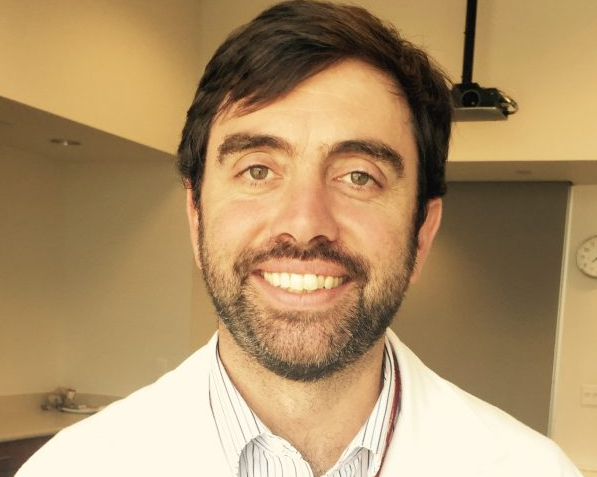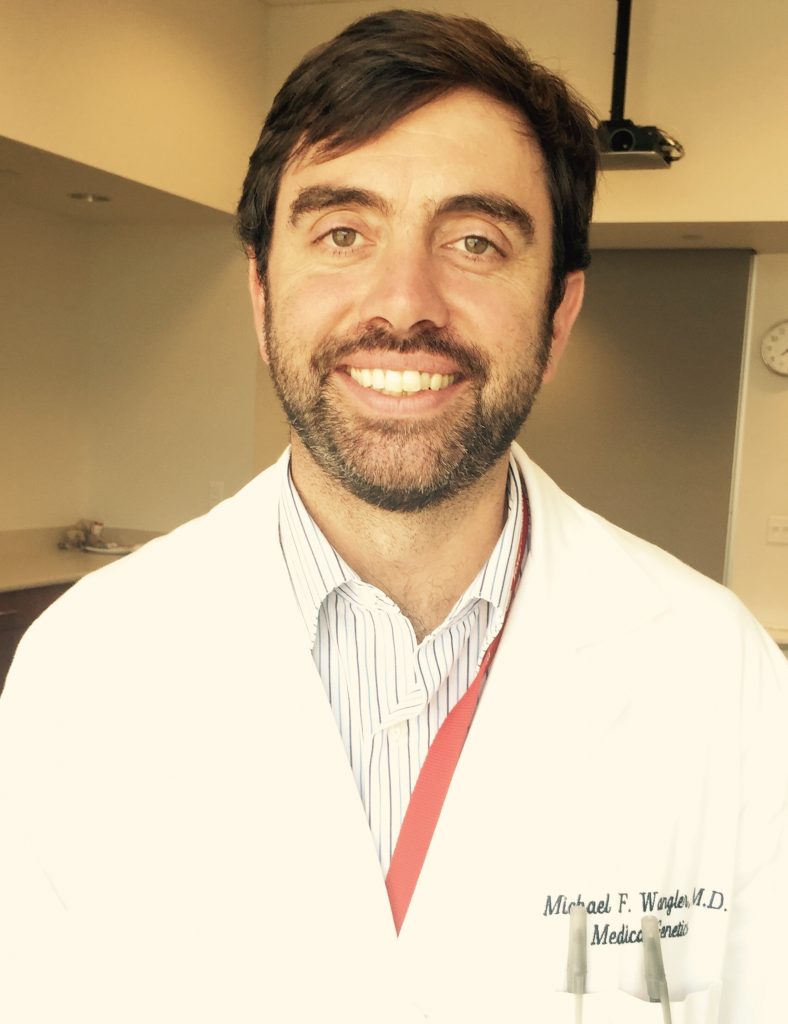New Faculty Profiles showcase GSA members who are establishing their first independent labs. If you’d like to be considered for a profile, please complete this form on the GSA website.
Michael Wangler
Assistant Professor (starting July 2016)
Department of Molecular and Human Genetics
Baylor College of Medicine
Lab website
Research program:
The overall long-term goal of Wangler Lab is to improve our understanding of the molecular pathogenesis of Mendelian disease by merging clinical observations, genomics and model organisms. We are currently engaged in three major efforts:
1) Gene Discovery in Mendelian Disorders
We have been involved in identifying disease genes for Mendelian disorders. Past efforts have included a broad list of single-gene disorders including COL11A1 in fibrochondrogenesis a severe neonatal bone phenotype (Tompson et al., 2010), de novo truncating mutations in AHDC1 in intellectual disability and speech delay, the Xia-Gibbs syndrome (Xia et al., 2014) and ACTG2 in visceral myopathy (Wangler and Beaudet, 2015; Wangler et al., 2014).
2) Model Organisms and the Molecular Pathogenesis of Mendelian Disorders
One of the most urgent problems in medical genetics is understanding variants from clinical sequencing. We began developing an approach to use Drosophila for cross-species studies of conserved genes to aid in understanding clinical sequencing findings. We work in Drosophila and simultaneously with genomic databases from patients with rare disorders. One of our efforts led to a merger of a forward genetic screen that resulted in diagnosis for 6 previously undiagnosed families (Yamamoto et al., 2014), and this approach was outlined in an article in Genetics (Wangler et al., 2015). We have recently developed an efficient pipeline using Drosophila melanogaster to screen nearly ANY conserved gene and variant of interest from genomic sequencing studies. We have successfully applied these tools to solve cases in the Centers for Mendelian Genomics (www.mendelian.org), and we are currently applying this pipeline to de novo missense variants from the Simons Simplex Collection as well as unsolved cases from the Undiagnosed Diseases Network (UDN).
3) Mendelian Disorders of the Peroxisome and Organelle Dynamics
Our lab has developed a Drosophila research program and a clinical research study focused on peroxisomal genes. This work has identified unique phenotypes such as a late-onset ataxia associated with PEX16 (Bacino et al., 2015) and cases of infantile encephalopathy due to DNM1L mutations. The study of these mutations in flies has allowed us to understand loss and gain of function alleles in peroxisomal disease and broadened our understanding of these phenotypes and their biological basis.
In summary Wangler lab aims to elucidate the pathogenic molecular mechanisms of Mendelian disorders by merging model organisms and human genomics.
“Merging model organisms and clinical genetics is always interesting. I literally have days where I work with unique strains of flies representing mutations in particular aspects of cellular machinery and then on the same day walk over to clinic and see a patient with a rare disease in which the same process is affected. If we can understand it in the fly we can make more headway in the clinic and offer more to our patients. How many people get to have experiences like that?” -Michael Wangler on his favorite part about his research
How has being a member of GSA helped you advance in your career? Why do you think societies like GSA are important?
To me the GSA represents the fundamental value of sound genetics in biological research. So often in the world of human genetics and clinical genomics, the first principles of genetics can become lost in terminology. I follow the GSA on Twitter and that link on social media has connected me to numerous articles and resources from the model organism communities. I’m consistently brought back to the fundamentals of genetics by looking through GENETICS and G3 and I hope to see more of the insights from these efforts migrating into the clinic in my career.
Previous training experiences:
1996-2000 Bachelors of Science (B.S.), University of California San Diego
2000-2001 Masters of Science (M.S.), Division of Biology, University of California San Diego. Research Mentor Ethan Bier
2001-2003 Medical Student at University of New Mexico School of Medicine, Albuquerque
2003-2004 Research Fellow, Doris Duke Clinical Research Fellowship for Medical Students at Washington University in St Louis. Research Mentors Michael DeBaun and Louis Muglia
2004-2006 Medical Doctorate (M.D.), Baylor College of Medicine, Houston, Texas
2006-2009 Pediatric Resident, Baylor College of Medicine
2009-2011 Medical Genetics Fellowship, Department of Molecular and Human Genetics, Baylor College of Medicine
2011-2016 Non-tenure track Assistant Professor, Department of Molecular and Human Genetics, Baylor College of Medicine, Research Mentor Hugo Bellen
What do you like to do when you’re not at work?
Triathalons and spending time with my kids (occasionally showing them the flies)














